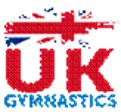The national governing body (NGB) for gymnastics in the UK, British Gymnastics, has announced that the Gymnastics World Cup that was to be held on 27 March 2021 at the Utilita Arena in Birmingham will no longer be going ahead. British Gymnastics and the international governing body for gymnastics, the Federation Internationale de Gymnastique decided to cancel the international competition because of concerns about athlete safety and the ongoing travel restrictions which have been implemented to reduce the transmission of Covid-19 and variants of the disease. The Gymnastics World Cup was previously cancelled in March 2020, because of what we now know was to be the first of the national lockdowns to be imposed by the UK Government in response to the Covid-19 outbreak.
As an NGB, British Gymnastics is responsible for holding competitions such as the Gymnastics World Cup which is a pathway for qualification for the Summer Olympics. An important part of successfully holding such competitions is name recognition, which British Gymnastics achieves through its well-known branding. In 2020 British Gymnastics achieved a gold medal winning performance in its successful trade mark infringement and passing off action in the English IP & Enterprise Court against UK Gymnastics in regard to the unauthorised use of the British Gymnastics brands (British Amateur Gymnastics Association v UK Gymnastics Ltd & Ors [2020] EWHC 1678).
Facts
British Gymnastics, which describes itself as “the UK National Governing Body for the sport of Gymnastics”, objected to the use of the signs, get-up and promotional materials of UK Gymnastics. UK Gymnastics initially marketed itself as “a UK governing body for the sport of gymnastics” before changing its strapline to “an independent body for the sport of gymnastics in the UK”, in response to a pre-action letter received from the legal representatives of British Gymnastics.
A comparison of the trade marks of British Gymnastics and the signs of UK Gymnastics
| British Gymnastics | UK Gymnastics |

 |

|

|

|
|
UK Gymnastics |
Decision
- It was held by Justice Melissa Clarke that UK Gymnastics did not satisfy the criteria of an NGB in terms of performing governance or administrative functions.
- Whilst there are examples of sports with more than one NGB, such as (a) athletics (UK Athletics and England Athletics) and (b) taekwondo (British Taekwondo and the British Taekwondo Council), it was held that British Gymnastics is the only NGB for gymnastics in the UK and the only recognised NGB for the sport.
- The court held that there was a strong degree of conceptual similarity between the terms “UK” and “British” which are references to similar geographical areas and confer an official status on the services being provided.
- Due to the widely held perception that “there is only one body” for governing the sport of gymnastics in the UK, there was a likelihood of confusion by members of the relevant public, such as child gymnasts, their parents and spectators, in relation to the above listed brands as belonging to the only NGB for gymnastics in the UK.
- The unauthorised use of these brands by UK Gymnastics was detrimental to the distinctiveness and repute of the trade marks of British Gymnastics, because a link could be established in the minds of the relevant public between the services provided by UK Gymnastics and those of British Gymnastics. This could give rise to a legitimate expectation for the services of UK Gymnastics, such as coaching and proficiency awards, to be on par with those of British Gymnastics in terms of quality, safety and scrutiny, which was found not to be the case.
Practical tips for NGBs to “land well” when protecting their brand image
- Register suitable trade marks to protect your brand.
- Carry out regular audits to ensure that the organisation’s brand enforcement regime is ‘fit for purpose’, so that robust and decisive action can be taken against entities misrepresenting themselves as affiliated with your brand - i.e. ‘free-riding’ to generate business for themselves.
- Make a direct approach to an entity that is carrying out objectionable activities or is using your brand, or one which is confusingly similar – e.g. by writing to request the removal or modification of content or brands.
- Compile documentary evidence of examples of consumer confusion between your organisation and the other entity, which could be used to support your case when writing to the other side and in legal proceedings.
Conclusion
As NGBs perform important roles as custodians and guardians in terms of the governance, regulation, safeguarding and promotion of a sport, it is essential that the public has a clear understanding of which organisations are recognised NGBs and those which are not.
As part of its brand enforcement strategy, British Gymnastics decided to take legal action against UK Gymnastics before the Intellectual Property and Enterprise Court (IPEC). IPEC is a specialist court of the Business and Property Courts of the High Court of Justice which provides a streamlined and lower costs IP litigation forum. Legal remedies such as injunctions, damages and legal costs awards are available at IPEC (see more in our blog The Intellectual Property Enterprise Court - ongoing success for brand owners).
The legal department at Mewburn is well-positioned to also help clients “land well” in IPEC proceedings because of the team’s extensive experience in handling disputes across the full range of intellectual property rights and the ability to leverage the firm’s world-class technical expertise.
Find the link to the decision here.
UPDATE AS OF 24 MARCH 2021: The Court of Appeal reviews the perfect score given to British Gymnastics at IPEC
Lord Justice Arnold granted UK Gymnastics permission to appeal the first instance decision of HHJ Melissa Clarke at the IPEC (discussed in detail above). On 24 March 2021 the Court of Appeal (CA) handed down a unanimous decision to adjust the IPEC ruling awarded to British Gymnastics. These adjustments concerned the third claim of passing off (ground 2 of the appeal); and the scope of the injunctive relief awarded to British Gymnastics (ground 3 of the appeal).
- In relation to ground 2, it was found that HHJ Melissa Clarke had “decided the wrong issue and found … [UK Gymnastics] liable for passing off on the wrong basis”. British Gymnastics had originally alleged that UK Gymnastics was “representing that it is an NGB for the sport of gymnastics in the UK”. However, the appeal established that HHJ Melissa Clarke had in fact erroneously considered whether UK Gymnastics made the misrepresentation that British Gymnastics had conferred the status of a NGB upon UK Gymnastics.
- In regards to ground 3, the CA allowed UK Gymnastics’ appeal in relation to the prohibition on UK Gymnastics carrying out acts “otherwise denoting some form of official or approved status upon the Defendants asserting to be a National Governing Body contrary to the fact”. The CA decided to set aside the aforementioned phrasing on the basis that, without a definition for an NGB, the injunctive wording was ungrammatical, unclear and uncertain. Such lack of clarity is contrary to the well-established principle that injunctions should be unambiguous in relation to the acts that can and cannot be carried out by the defendants.
While six grounds were submitted for appeal, the CA only considered five of these. This was because the sixth ground of appeal was rendered redundant following the findings that grounds four and five had not been made out. (Grounds four and five related to allegations of inconsistencies and errors in HHJ Melissa Clarke’s assessment of the likelihood of confusion between the trade marks of British Gymnastics and the signs of UK Gymnastics).
Ultimately, the CA maintained British Gymnastics’ winning performance at the IPEC. The CA upheld the findings of trade mark infringement and UK Gymnastics was found liable for two out of three of the passing off claims pleaded by British Gymnastics. Find the link to the Court of Appeal decision here.
This blog was originally written by Hilda-Georgina Kwafo-Akoto.
Andy is a Head of Trade Marks and member of our Management Board. He is a Partner and Chartered Trade Mark Attorney who handles a wide range of trade mark work, from searches, portfolio reviews and devising filing strategies to prosecution of applications, oppositions, revocation and invalidity actions. Andy has extensive experience representing clients at the UKIPO, EUIPO and WIPO (for international ‘Madrid Protocol’ registrations).
Email: andy.king@mewburn.com



